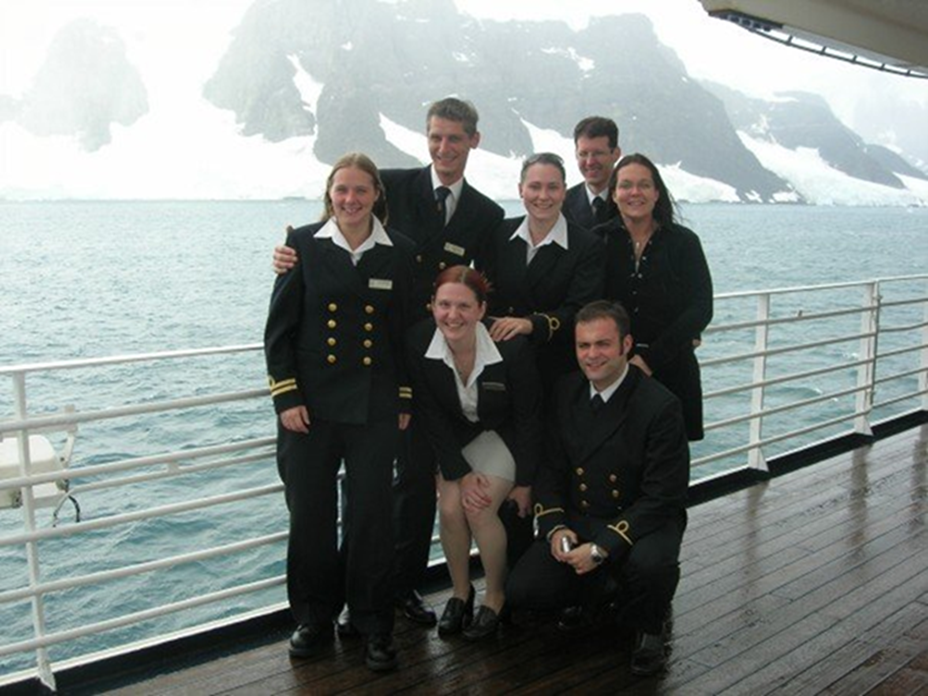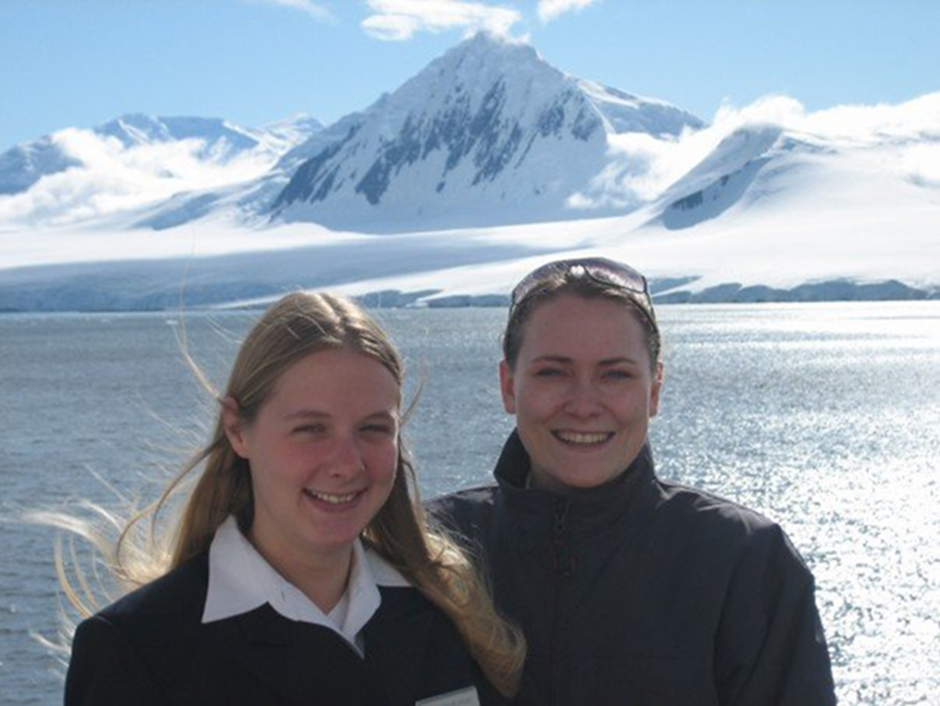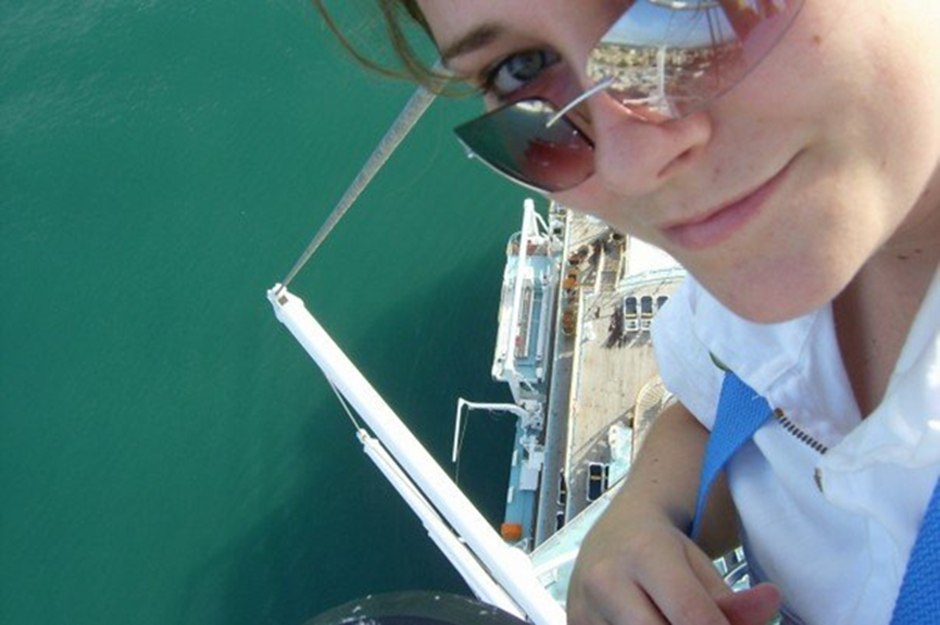An Insight to Emily’s Career At Sea
We caught up with Viking Crew Head of Crewing, Emily Jaenicke, to discover more about her career at sea, and the different paths that can lead to a life at sea.
What made you consider a career at sea?
Emily: “Living by the coast certainly had an influence on my decision to start a career at sea. Sailing on ferries as a child to go on family holidays, as well as my grandfather being in the Royal Navy, meant that I grew up surrounded by ships. This, combined with my interest in travel, amongst other reasons, definitely contributed to my decision to start a career at sea.”

Was a career at sea always an option for you?
Emily: “I don’t think I actually thought about what I wanted to do as a teenager. I studied my GCSEs, A Levels, and then went to university to study Physics. Towards the end of my first year, however, I began questioning why I was there.
I couldn’t see myself using my degree in a teaching career, so thought, “what am I doing?” My brother at the time was already studying a cadetship, and suggested I consider working on cruise ships.
So I gave Viking Maritime Group a call, they had an open position for a cadet, and I had the academic background they were looking for, which led to an interview.
It was all very coincidental timing. I had just finished my first year of university, received my results, and was planning on returning to studies for my second year. However, the intake for a cadetship at Warsash Maritime School was starting in a few weeks, so I decided to enrol. The rest is history. I guess it was meant to be really.”
What was your role?
Emily: “After leaving university, I began my cadetship as a Deck Cadet, training to be a Navigation Officer. The first phase of college was six weeks of basic STCW sessions, which gave me the tools to complete my first sea phase.
During the first phase, I worked with the deck crew. This involved a lot of painting, chipping, working with ropes, and learning the basics of the nautical side of shipping. As well as, working with the deck crew for anchoring, mooring, maintenance, and greasing etc.
Then I went back to college, expanded my knowledge where I could then later put it into practice during my next sea phases. I worked closely with bridge officers, working with the charts, learning celestial navigation, and planning routes. It's a very practical way of doing things.
Then at the end of the three years, I sat a 1:1 verbal exam with a master mariner who assessed me on everything I had learnt in the last three years.”

Would you recommend a career at sea?
Emily: “100%, yes I would recommend a career at sea. It definitely changed me. I came back much more independent, and appreciative of different cultures and religions, as you gain more of an understanding of the world. I travelled to Africa, down to Antarctica, the Caribbean, the Baltic, and saw both sides of Russia. It was absolutely incredible and you get paid to do it at the same time.
You really get to understand why people say, “you’re all in one boat”. You have no choice but to get along with each other, and it makes you a much more rounded individual as a result.
Additionally, I gained an appreciation for the industry. As an island, the UK is limited in which foods and materials can be produced, so it makes you appreciate the importance of the shipping industry and how it needs nourishing. Even if you’re not at sea, you’re connected to it somehow. This is similar to how we offer support services here at Viking Crew. Ships can’t run without the people ashore, so you’re part of a team, making the whole ecosystem work.”
Would you still choose a career at sea if you were a young person/teen now?
Emily: “Yes, I would. Maybe not in the order I did it, but you can’t turn back time, and I don’t regret that path. It definitely made me grow up and it instilled a work ethic that I still have today. In any position, you shouldn’t have the mentality of “that's not my job”, because we’re all working towards one goal and we all have to chip in and help out, otherwise things aren’t achieved.”
What opportunities can a career at sea offer?
Emily: “Travel. Friendships. Maturity. Independence. Resilience. Multitasking. Good all-round skills that are transferable in lots of different ways, so that when you eventually come ashore, you can apply these skills to your role.”

What advice would you give to someone deciding on a career at sea?
Emily: ”Go for it! Just because you’re deciding to do something now, doesn’t mean you can’t change your mind in five years time. If it's something you think you want to do, what are you actually risking by giving it a try?
I’d also advise sailing on a ship somewhere before you embark on a life at sea. I had a family member that tried a career at sea, after seeing how much my brother and I enjoyed ourselves, but they got very sea sick! So it’s a good idea to make sure that’s not going to be an issue for you.”
It was great speaking to Emily and getting an insight to a different pathway of starting a career at sea, but nevertheless, a very successful one.
University and higher education might not be for you, but have you considered a career at sea? Check out our helpful blogs to give you some tips and advice on a career at sea.
Or if you’re looking for your next role at sea, then view our full list of vacancies here.
Date of Issue: 23rd April 2024
Last Edited: 16th August 2024

